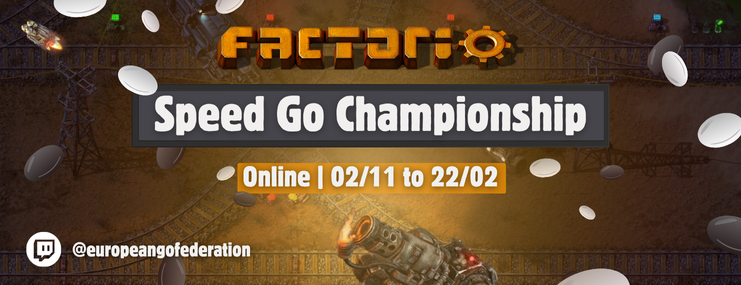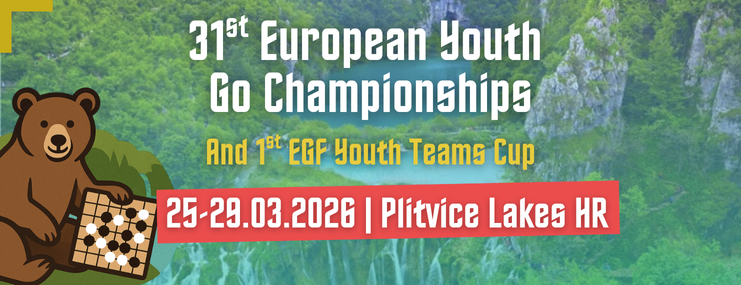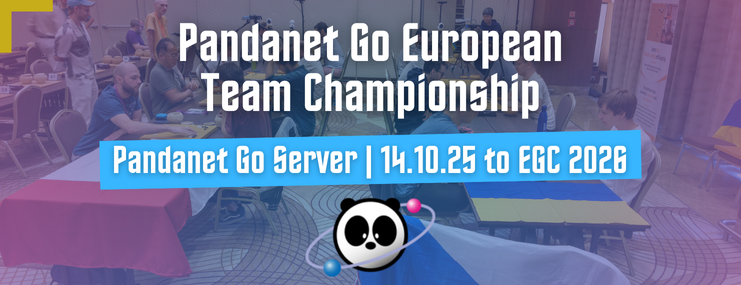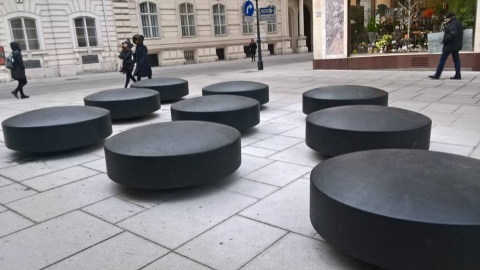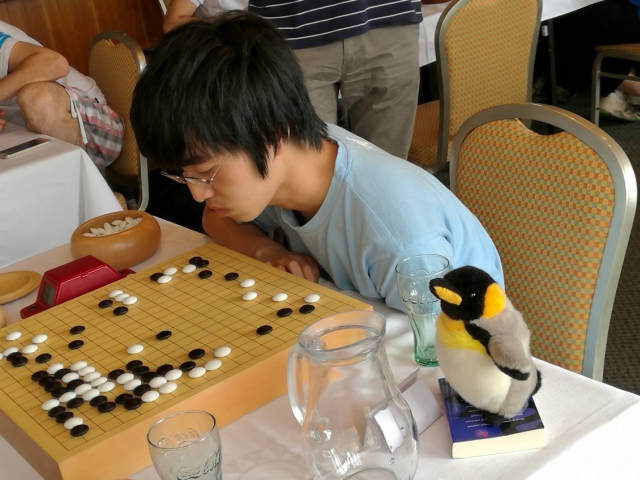Both attractions can be found at places that are interesting for go tourists. They are also conveniently connected by the same underground line:
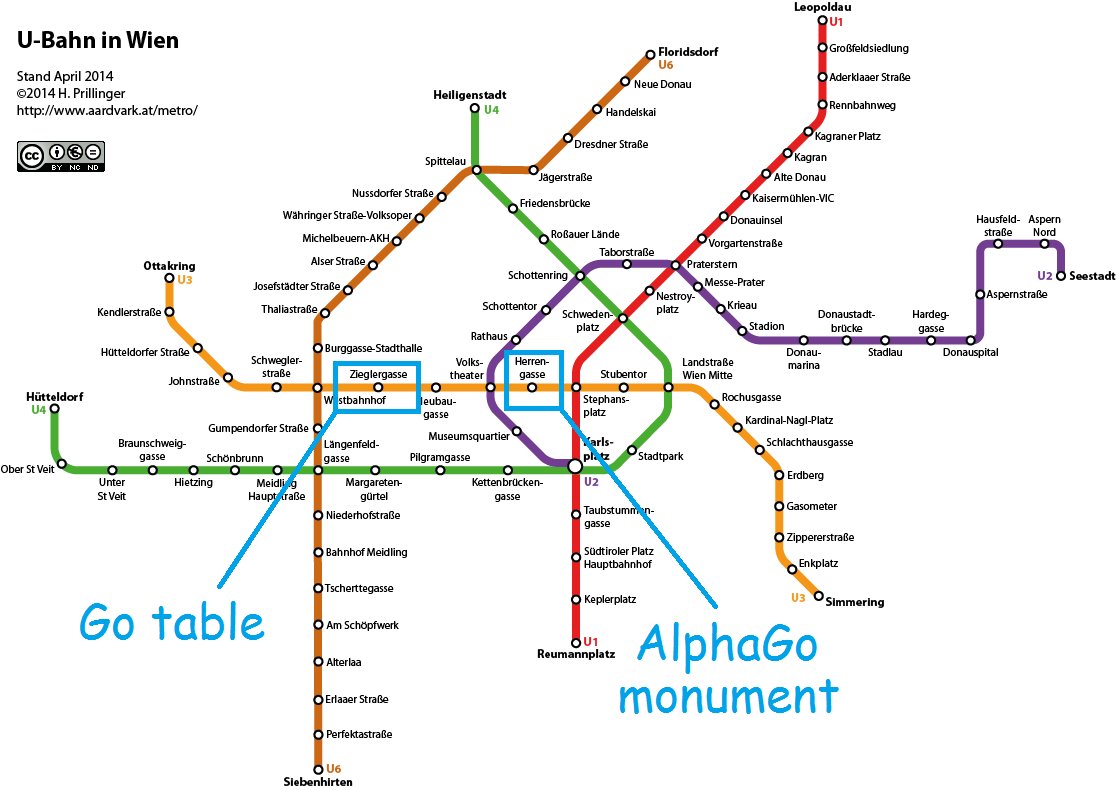
By taking the orange underground line U3 to Zieglergasse, you will find yourself on Vienna's busiest shopping street (spanning from Museumsquartier to Westbahnhof). Not only is Vienna's famous go club Go7 located there, right next to the entrance to the Go7, there is an electronic table on which you can play go.
Getting off from the U3 at Herrengasse takes you to the cultural and historical centre of Vienna, and inmidst the tyical places of interest for tourists, you will discover a newly installed monument commemorating AlphaGo's victory against Lee Sedol in March 2016.
The Touchscreen Table
Tired, sore from supporting Austria's economy and seeking a way to evade the ever-moving crowd, avid shoppers strolling down Mariahilfer Straße find an oasis of shaded seating that suddenly pops up. The seemingly randomly placed chunks of cement under giant square umbrellas turn out to be a mere pedestal for a glistening screen displaying virtual wood with orthogonal lines on it. Placing one's finger on the grid makes black and white circles appear alternately, and occasionally they disappear simultaneously in large quantity.
Thus is how (I imagine) a great many passers-by in Vienna get their first contact to the game of go every day.
It is reasonable to assume that no other city has a larger population of people who have played at least a few moves of a game of go without knowing what it is.
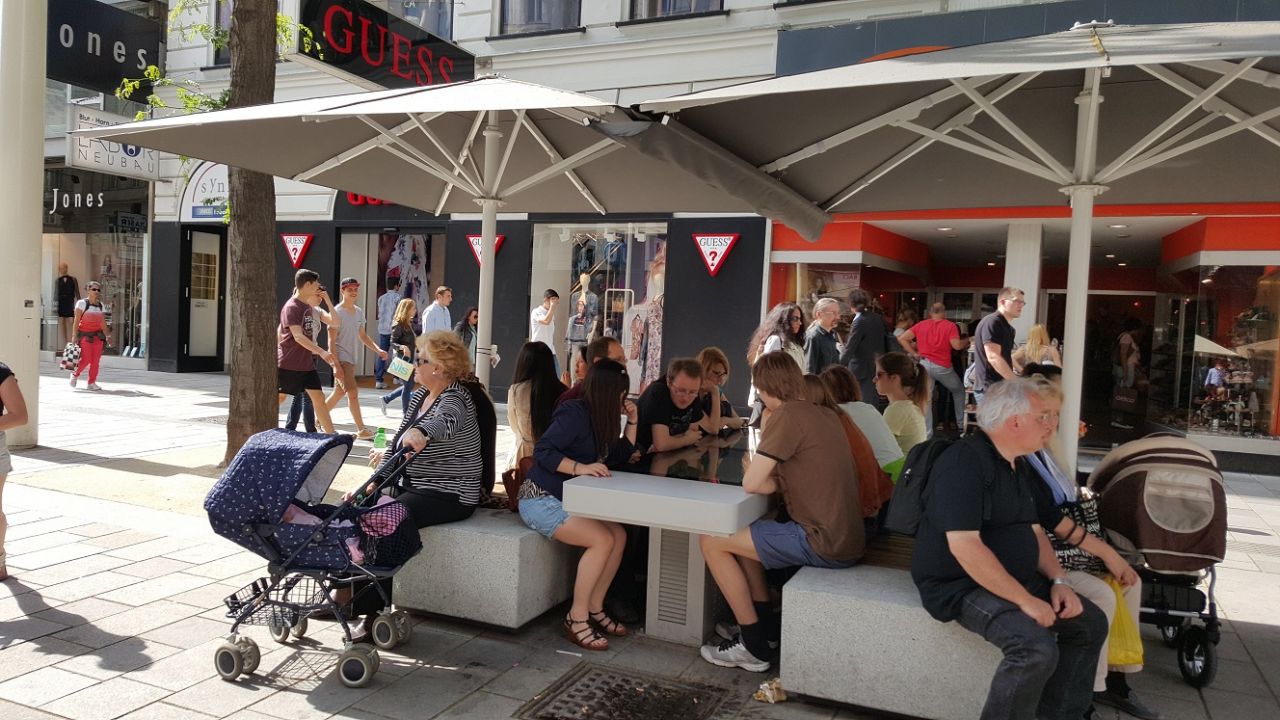
The table was designed, programmed and its construction overseen by Daniel Bösze 4 kyu in 2014. The project was financed by the generous sponsor of the Go7. Daniel received the first world-wide Iwamoto Award for the touchscreen table.
The innovative double-sided interface allows players sitting on either side of the table to operate the software. It also includes explanations of the rules of go for beginners who are not too lazy to read a few lines of text.
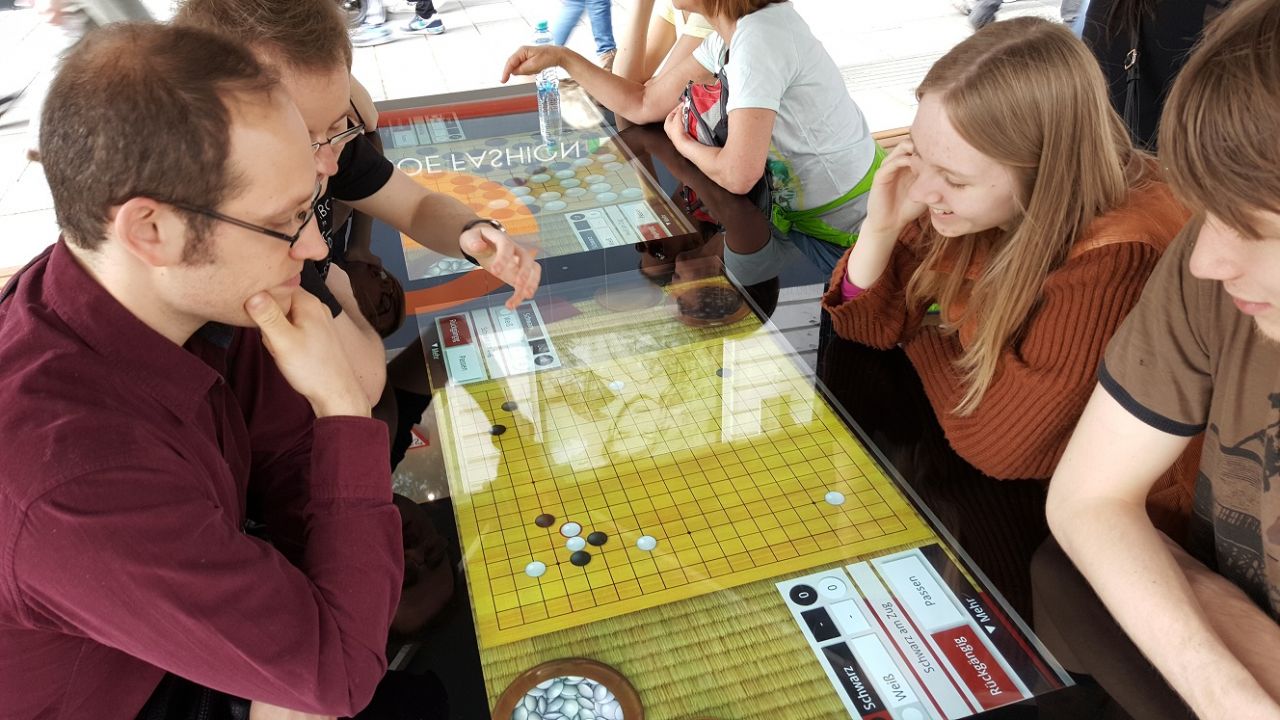
Those who cannot find a friend to play with can also set a bot as the opponent, although personally, I never had trouble defeating the bot (GNU Go). But even though AlphaGo is not available for mortals like me to play against, a monument paying tribute to it can be gazed at (and sat on) three underground stops away.
NEW: The AlphaGo Monument
In December 2016, this landmark was installed by Hochhaus Herrengasse, conceived by the artist Gregor Eichinger whose go rank is unknown. Its construction was realised without any intervention whatsoever by the Austrian Go Federation, which shows the impact AlphaGo had on the general perception of go. In fact, it took a go club member passing by randomly to make the Viennese go scene aware of this installation.
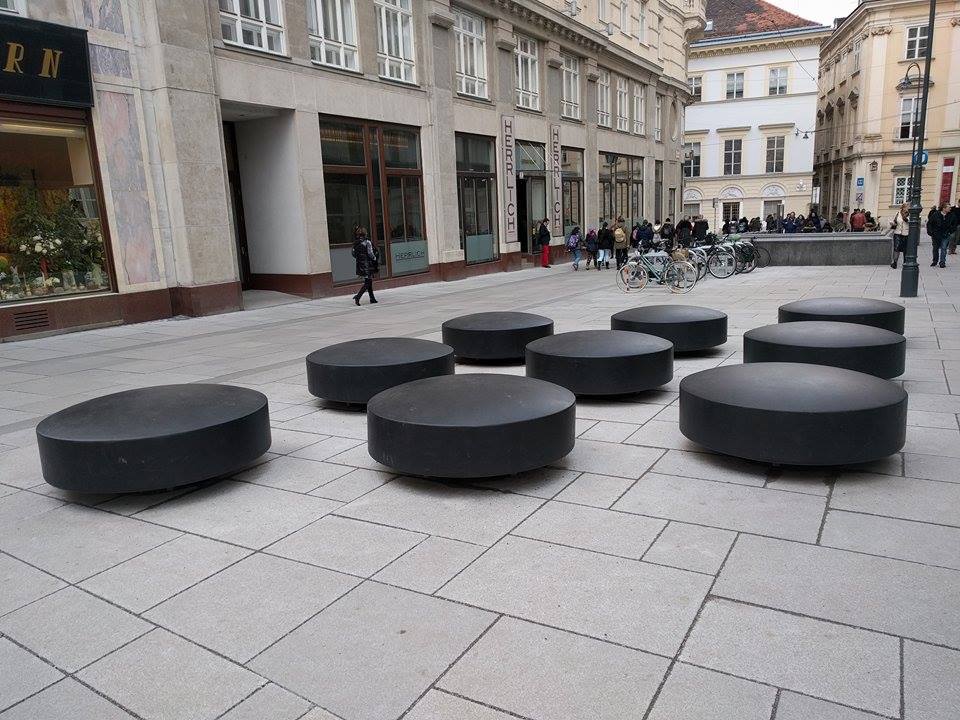
Citing from the website where you can find further pictures (that were not copied here for fear of copyright infringement):
What served to Eichinger as a starting point and inspiration for the design was the memorable event in March 2016 when the artificial intelligence AlphaGo defeated South Korean go world champion Lee Sedol. For the first time, a machine was playing the game intuitively, having been taught by itself, and won. The world champion later described one of the moves by AlphaGo as ingenious. (What an understatement.) An event seen as a “game changer”, similar to the discovery of America by Christopher Columbus.
The sculpture, which hints at go stones, reflects on the one hand the globally relevant change in the relationship between man and machine and on the other hand invites to search for one's place and linger around.
The rock used for the work, Nero Assoluto, is subtle in terms of colour, materiality and form in relation to the adjacent high-rise building, thus creating an aesthetic extension of the building into the urban space.
[Each stone has a diameter of 1.30 metres, weighs 1.5 tonnes and appears to hover almost magically above the ground, at seating height. At night six circular spots sunken in the ground light the stones from underneath, strengthening this impression. They could also remind one of game counters that have been placed by a higher power on the urban game board of the street paving.]1
Gregor Eichinger said: "I am fascinated by the idea of creating a sculpture that, in the urban and everyday life, makes us aware of an event that is of great importance world-wide. This is the real role of statues and sculptures that surround us in the city. We took big pieces and opened a virtual playing field. You can sit, but at the same time you are connected to the intelligent game."
Press release by Hochhaus Herrengasse in German
1Article provided by Hochhaus Herrengasse in German and English
The artist's homepage
This and more exciting stories can also be found in the first EGF yearbook, put together by Kim Ouweleen. It is planned to be published in June and will be available for sale on this website and at the EGC. Announcement to follow.





